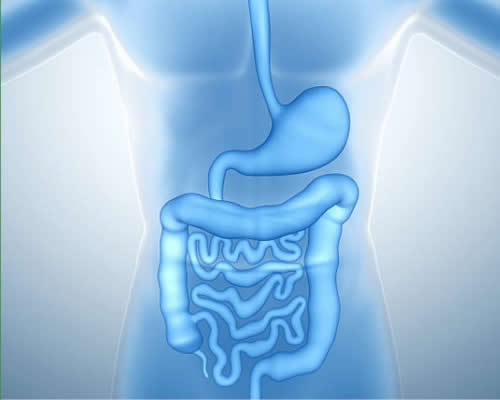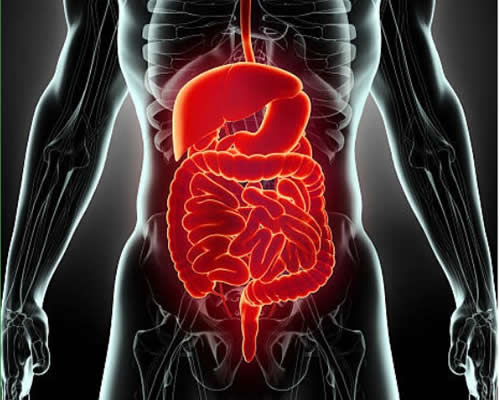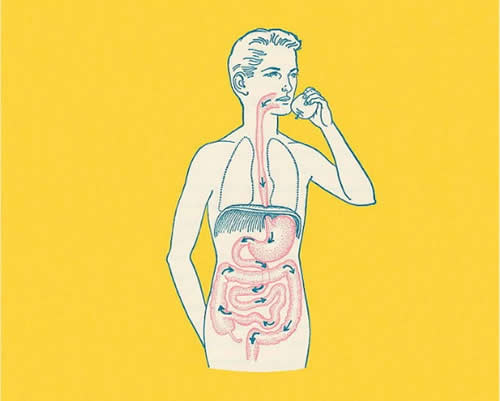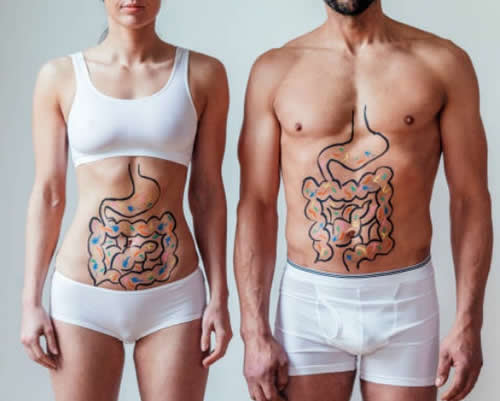Positive Health Online
Your Country

The Health Benefits of Colonic Irrigation
listed in colon health, originally published in issue 252 - February 2019
Does Your Colon Need Cleaning?
In this article we’ll look at the procedure of colonic irrigation, what it involves and who can benefit from a treatment. Our digestive system is connected to every other system of the body. Many natural health practitioners believe all disease starts in the gut - in fact that was exactly what Hippocrates stated over 600 years ago. Your intestinal tract is a complex organ which has the job of digesting every piece of food that enters your mouth.
Introducing your Colon
The colon, also known as the large intestine, is a vital part of our digestive system and performs a number of incredibly important roles. Once the food we eat has passed through our stomach and small intestine, where the majority of the nutrients are digested and absorbed, it enters the colon.
Our colon is a hollow tube measuring around 6ft in length. It’s responsible for absorbing water from the intestinal mass to form faeces, producing certain vitamins like B Vitamins and Vitamin K, and eliminating wastes and toxins.
The innermost layer of the colon is called the mucosa. These cells provide lubrication to assist the passage of the stool. The colon is home to our bowel flora, or microbiome. As many as 1000 species of bacteria reside in our colon, both in the space inside the tube (the lumen) and sticking to the intestinal mucosa.
The bacteria we play host to benefit our health in many ways. They ferment fibre which cannot be digested higher up the digestive system, producing fatty acids which can be used as an energy source. They are hugely important for our immune system, as well as playing a role in detoxifying certain substances. The bacteria produce enzymes which transform substances that have been partially detoxified by the liver. After this transformation the substances are reabsorbed into the bloodstream and shunted back to the liver where the detoxification process is completed. This process is important for us to detox some substances naturally produced by the body, such as oestrogen, and other toxic substances like medical drugs.
How well our bacteria perform these roles for us depends on what types predominate. In a neat mechanism, bacteria produce the exact type of environment in which they themselves can thrive. In the case of our friendly bacteria, this naturally reduces the likelihood of pathogenic organisms being able to flourish, as they prefer a different environment. Beneficial bacteria also compete with undesirable bacteria for food sources.
Ideally, for optimum gut health, we’d all eat food with plenty of natural fibre, avoiding food additives and toxins, and looking after our microbiome by avoiding antibiotics and sugar. But even if we strive to eat a healthy diet, many factors in today’s world can combine to adversely affect the health of our gut.
Constipation and Your Colon
Processed foods which are low in fibre contribute to constipation. It’s estimated that 1 in 7 adults, and a shocking 1 in 3 children, according to NHS Inform, are suffering from constipation at any one time. Constipation affects twice as many women and men.
The orthodox medical definition of constipation is conservative – it’s generally considered to be less than three bowel movements per week. However, many naturopaths believe we should open our bowels three times daily – once after each meal, so our food is completely digested, absorbed and evacuated within 24 hours of eating it. In the 1980s, the Mayo Clinic measured the time from eating to elimination in otherwise healthy people, and found it averaged a whopping 53 hours.
There are many different reasons constipation is so rife. The primary cause is poor diet, but another contributing factor is mild dehydration. If we don’t take in enough water the stool can become hard and difficult to pass and constipation is the result.
Many natural health practitioners believe that if the faecal material passes along the colon too slowly, what can happen over time is it can form a coating on the inside of the intestinal walls. This is particularly the case for low fibre, processed foods. The natural reaction is for the bowel to create more mucus for protection, which also builds up in your colon.
The contents of the colon are normally propelled along by waves of muscular contractions or peristalsis, a bit like the way a worm contracts its body to move around in the soil. Anything that builds up on the intestinal lining will interfere with this peristaltic movement, and the faeces can’t be propelled along so well. This causes even more constipation in a vicious cycle. It’s a bit like having a garbage dump sitting inside you.
You wouldn’t necessarily know you are carrying around this mass inside your colon, and it may surprise you to know it can hang around for months or even many years, as there is little the body can do on its own to remove it once it’s formed. It’s argued toxins arising from this substance can be absorbed through the bowel wall into the bloodstream and will need to be detoxified by the liver, causing more work for this already overworked organ. This process has been termed ‘autointoxication’, or self-poisoning. Our microbiome can also become adversely altered.
If our faeces are hard, the muscles in the bowel wall are forced to work harder to propel them along. The increased pressure on the bowel wall can cause bulges in weak spots in the outer muscle area. This may lead to diverticular disease, when the bulges form pockets or diverticula in the colon wall. Particles of the colon contents can become trapped in the pockets and they can then easily become inflamed. This leads to diverticulitis, which is associated with pain, bloating, diarrhoea and high fever.
It makes sense, then, to look after our gut. In today’s world it can do with a little tender loving care every now and again.
This is where colonic irrigation comes in.
What is Colonic Irrigation?
Colonic Hydrotherapy, which is another term for colonic irrigation has been used since ancient times. Hippocrates himself was a convert.
The practice of giving enemas was recorded as early as 2500 years ago in an Egyptian medical document called the Ebers Papyrus. Colonics were used by John Kellogg, inventor of the breakfast cereal, on thousands of his patients with gastro-intestinal disorders. In all but a few cases, surgery was unnecessary after they had received the colonics.
Over the years, bowel health has become a more or less unmentionable topic and we tend to be embarrassed to talk about it openly. As a consequence, the use of colonics declined.
What will Happen During a Colonic Irrigation Treatment?
Colonics work by giving your colon a flushing bath, to rinse out toxins, debris and the excess waste matter that has built up over the years.
The process of colonic irrigation is similar to that of an enema. The colon is cleansed by gently introducing filtered water into the rectum at a controlled pressure. Unlike an enema, however, up to 60 litres of water is used, depending on the person.
A treatment lasts around 45 minutes. Rubber tubing carries clean water in and waste out. Herbal supplements are often used as an am adjunct, to mechanically sweep out debris from the colon.
Colonic irrigation is painless, surprisingly relaxing and not at all embarrassing, although our reluctance to talk about bodily functions means that often people find the idea distasteful, even though going to the toilet is a daily reality for us all!
What can Colonic Irrigation Achieve?
- It can clear hardened waste materials which may have built up on the intestinal lining;
- It can empty pockets of impacted waste matter from the colon;
- Relief of constipation and reduction of faecal transit time;
- Improvement and strengthening of muscular contraction in the colon walls;
- It cleanses, tones and exercises the colon;
- It balances the micro-flora ecosystem by improving its environment. Unwanted guests such as the wrong type of bacteria and parasites can be flushed out;
- It can improve the health of the colon wall. By doing so it can increase the absorption of nutrients such as B Vitamins and Vitamin K and decrease the likelihood of toxins being reabsorbed into the bloodstream. The absorption of nutrients is also enhanced without the physical barrier of waste material;
- Immune health is improved. A huge proportion of the immune system resides in the intestines. One study found colonics increased the number of lymphocytes (white blood cells);
Often, the relief provided by a colonic can give the motivation to make positive changes in diet and lifestyle.
How can Colonic Irrigation Influence my Health?
Because the digestive system is so closely connected with the health of the rest of the body, it makes sense that colonic irrigation can have a wide range of benefits. Many of these are experienced very soon after the treatment.
Many of the claimed benefits of colonic irrigation are anecdotal, but many clients report to their therapist that they feel lighter, sometimes many pounds lighter, as well as feeling clean, revitalised and rejuvenated. The benefits of a colonic are ongoing as the colon is better able perform its functions.
Since colonic irrigation as a treatment can’t be patented, there’s not a great deal of money available to pay for expensive scientific research studies. However, it has a long history of safe use and some studies are now emerging to demonstrate its effects on health. The procedure is slowly being integrated back into mainstream medical practice – in the USA, at least. Dr Leonard Smith of Florida, who has been a specialist gastro-intestinal surgeon for over 25 years, says ‘colon hydrotherapy is the gentlest and most effective treatment for a constipation problem’.
One study in which patients received three colonics over a period of two weeks reported improvements in symptoms as diverse as dermatitis, pollen allergy and ovarian cysts.
Research has found colonics to be effective in reducing pain and discomfort in both constipation- dominant and diarrhoea dominant IBS. Therapists have noted it is also helpful in cases of diverticulitis, wind and bloating, food intolerances, headaches, fungal infections like thrush, athlete’s foot and fungal skin conditions, and skin problems like eczema, psoriasis and acne. When the liver is overloaded because toxins are being absorbed from the colon, the skin can take over some of the burden, so toxins on the inside can show on the outside too.
Many clients also experience positive effects on their mental health. Colonic irrigation therapists will often talk about the relationship between a ‘clear body and clear mind’.
What will happen after a Colonic?
Usually, you will experience a slight delay in bowel movements before they resume. Afterwards your stools will usually be larger and easier to move. Some patients have no bowel movement at all for a few days after a colonic. This is quite normal. Rarely, patients experience diarrhoea or loose bowels, but this doesn’t usually persist for any length of time.
It’s important to sip plenty of water after your treatment to ensure you stay adequately hydrated.
What about my intestinal bacteria?
Some researchers worry colonics may flush out our good bacteria. However, the health of our microbiome depends on a healthy environment inside the colon. So, if we improve the environment inside, it will support the health of the beneficial types of bacteria and the pathogenic types will be discouraged.
We can take any number of probiotics, but if the environment inside our colon is hostile to them, they won’t flourish. Some of the bacteria attach themselves to the colon wall so they won’t be flushed out by the colonic, leaving behind a population to grow happily in the cleansed bowel.
Is Colonic Irrigation Safe?
The treatment has a long history of safe use. All qualified therapist nowadays use sterile disposable specula for all patients, so risk of infection is not an issue. Some scientists are concerned about bowel perforation, however the therapist introduces the water very gradually and at an appropriate rate for you, so actually the treatment is very gentle.
Anther objection raised is the possibility of minerals like sodium and potassium being washed out of the bowel by the colonic. A couple of reports do exist of people who have become dehydrated after colonic irrigation treatments, but one patient had previously had part of her bowel removed as a result of Chron’s disease, and the other was linked to a suspected reaction to herbs which were used as part of a colon cleanse.
Generally, any internet search for colonic irrigation will find articles written by the mainstream medical profession criticising colonic irrigation. The criticism revolves around the lack of scientific evidence to support the accumulation of faecal matter in the colon, but there is no disputing the fact that the technique has been used with great success over many years. Since the health of the colon is so crucial to our general health, any treatment which improves colon health has to be beneficial. If you have any concerns, speak to your GP.
Is Colonic Irrigation Suitable for Everyone?
The following conditions may mean colonic irrigation is not suitable for you:
- Haemorrhoids
- Anaemia
- Crohn’s disease
- Diverticulitis
- Ulcerative colitis
- Dysentery
- Abdominal hernia
- Cancer
- Severe or uncontrolled hypertension
- Recent colon or rectal surgery
- Pregnancy
- Liver cirrhosis
- Congestive heart failure
- Heart disease
- Eating disorders
A Word About Poop
Despite so many of being embarrassed to talk about it, naturopaths believe it’s important to be aware of our toilet habits. Not just their frequency, but also their form, odour and colour.
As we’ve mentioned, two to three soft stools per day is optimal. Over four per day indicate an overactive digestive system, while less than one per day is indicative of constipation. You want the feeling of complete elimination afterwards. Dark brown is the optimal colour, while an unpleasant odour can indicate fungal infections, dysbiosis and poor digestion generally.
Mucus in the stool can indicate fungal, bacterial infections or parasites. Mucus can also be a sign of Crohn’s disease. If the stool is coloured yellowish or green, this can indicate that your liver or gallbladder are struggling. If the stool is fatty, you may not be digesting fat properly. If the stool is black, this could mean there is bleeding in the upper gastrointestinal tract – always speak to your GP if this is the case.
Detoxing and Colonic Irrigation
When we are fasting or undergoing a detox programme, toxins are released from body cells where they travel to the liver for processing. They then are discharged into the colon for escorting outside. If the digestion is sluggish, they may end up being absorbed into the blood once again, meaning double the work for the liver. Colonics as part of a fasting or detox programme can facilitate the elimination of the toxins via the colon far more rapidly than if you just let nature take its course.
Further Information
At Amchara Gozo offers optional colonic hydrotherapy by qualified and highly experienced staff. We also facilitate self-administered water and/or coffee enemas which are explained by our naturopath on arrival.
Acknowledgement and Picture Credits
Images used courtesy of Amchara Health. https://www.amchara.com/detox-and-cleanse/colonic-irrigation
Comments:
-
No Article Comments available



